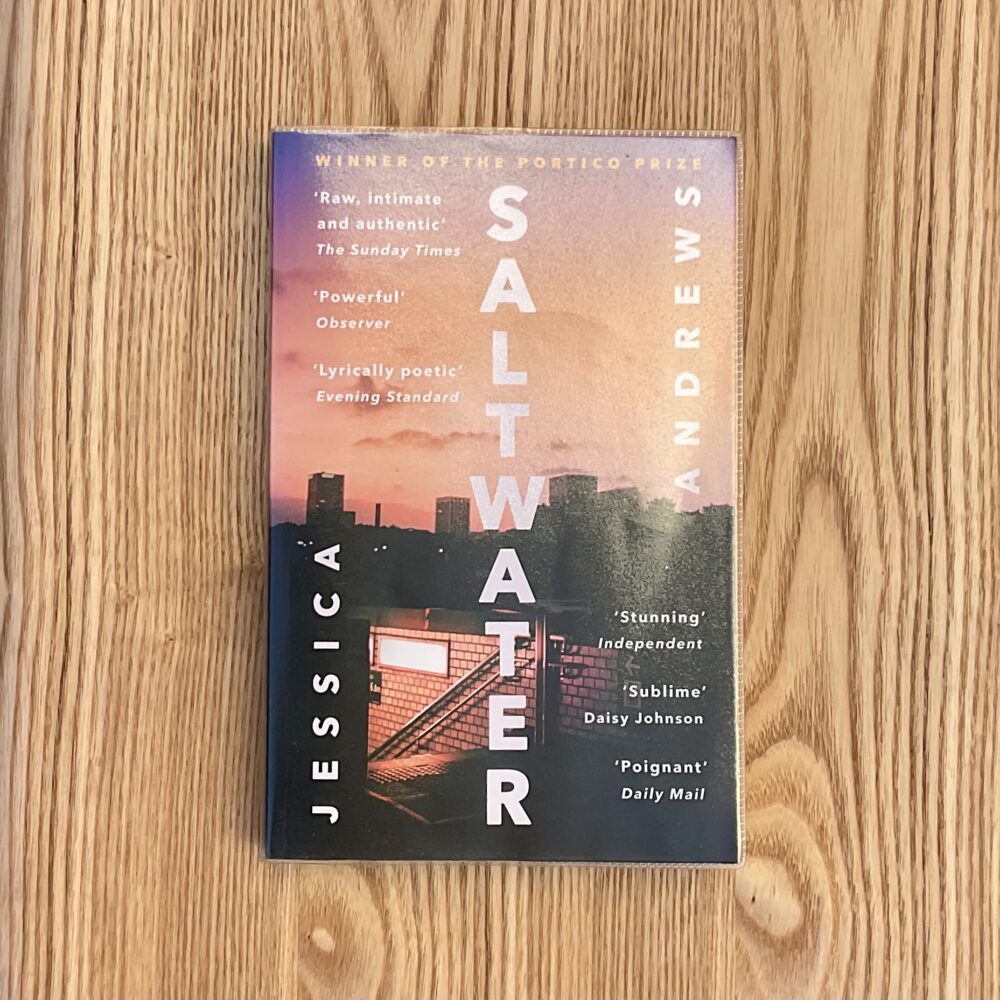I’ve been reading ‘Saltwater’ by Jessica Andrews

This 2019 coming-of-age novel is narrated by Lucy. She grows up in a working-class household in Sunderland, goes to university in London, and moves to rural Ireland following her graduation.
The novel is written in fragments which are mostly, but not completely, arranged chronologically. The style reminded me a lot of Jenny Offill’s novels, though I found Andrews’s writing more immediately relatable.
This is Andrews’s first novel, though she has published another since. Her writing is beautiful, almost poetic at times. I think she captures particularly well the North/South relationship, and the way that people from the North are often “othered” in London.
Andrews is also good at needling the class divide and the different frames of reference privilege brings: there is one closely observed section where she is challenged about working in a bar while also preparing for her A-Levels.
I wasn’t completely won over by the plot of this novel: it’s a coming-of-age novel, and I’m uncertain whether I got the sense that the character was really developing. There was a whole plot about Lucy’s relationship with her father that seemed designed to do the heavy lifting on this, but felt a bit ‘tacked on’ to me.
However, I was so thoroughly taken with the writing that I didn’t honestly mind about the rest, and I’ll certainly look out for Andrews’s second book.
Some particularly striking quotations from Saltwater:
London is built on money and ambition, and I didn’t have enough of either of those things.
I would like to have something to believe in, but it is difficult. Everything my generation was promised got blown away like clouds of smoke curling from the ends of cigarettes in the mouths of politicians and bankers. It is hard not to be cynical and critical of everything, and yet perhaps there is an opening, too. When the present begins to fracture, there is room for the future to be written.
High-rise tower blocks and the despondency of stale, squat houses are aesthetically pleasing when you are removed from them. Middle-class architects with utopian ideals might be able to appreciate the solidity and the magnitude of a huge hunk of concrete with lives carved unapologetically into it, but when that becomes your reality and you have no choice and no way out, when you’re living every day under the shadow of someone else’s vision, it becomes oppressive, the weight of their dreams crushing the life out of you.
Many thanks to Newcastle City Library for lending me a copy of this book.
This post was filed under: Post-a-day 2023, What I've Been Reading, Jessica Andrews.